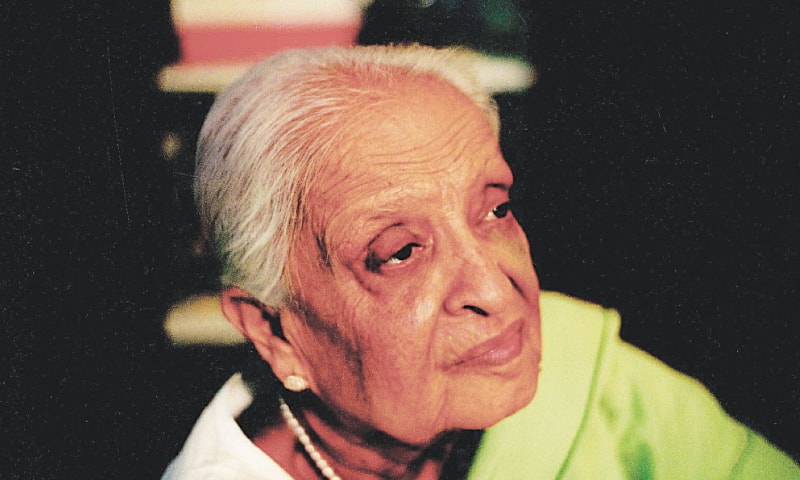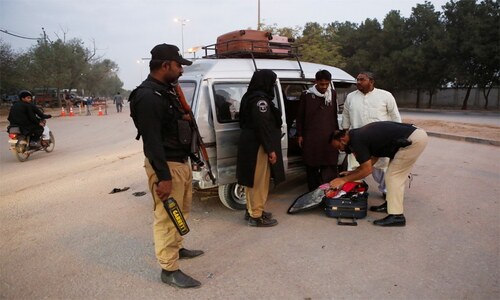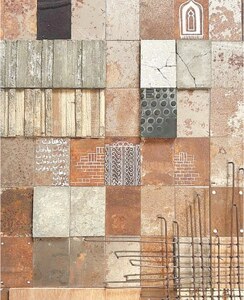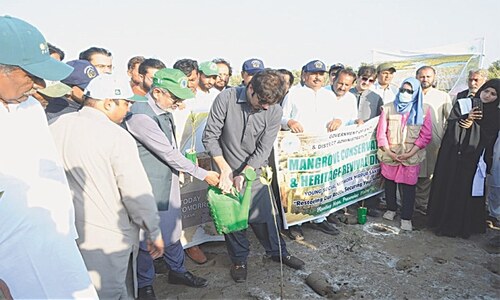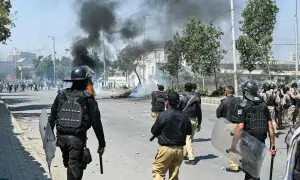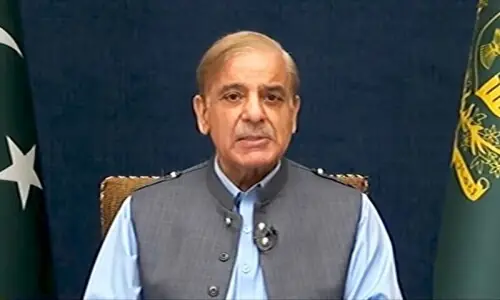PAYING homage to Fatima Surayya Bajia at the Ghalib Library recently, speakers were mournful. This was her first death anniversary, observed in collaboration with the Fatima Surayya Bajia Foundation. The speakers highlighted different aspects of Bajia’s life and her literary works. But they all were unanimous on one aspect of Bajia’s personality: Fatima Surayya Bajia was a mother figure, the guardian angel, and she did something wonderful for them at a critical juncture in their lives.
Besides Bajia’s literary works, her social services and personal favours for many, she had done something wonderful for the Ghalib Library and Idara-i-Yadgar-i-Ghalib (IYG). During the last decade of her life the library and IYG had become a priority for Bajia and she tirelessly worked for them despite her illness.
This writer has the honour of having worked with Bajia on IYG’s executive committee for about 11 years, the body that supervised, and still does, the working and publications at the library. Bajia was our president. It was Mushfiq Khwaja’s idea of nominating her as president and it did wonders for the IYG and the library. But just a few days after Bajia’s taking over as president, Mushfiq Khwaja passed away. Perhaps he had envisioned what the future had in store for him.
The Ghalib Library and IYG were established in 1968 to commemorate Ghalib’s 100th death anniversary in 1969 on a grand scale. The moving spirit behind it was Mirza Zafar-ul-Hasan. He was the founder-secretary and our legendary poet Faiz Ahmed Faiz was the founder-president. They made Ghalib’s centennial a memorable event and soon the Ghalib Library became a rendezvous for intellectuals, artists and writers in Karachi. Zafar-ul-Hasan had asked all the prominent figures to join in and scholars from upcountry and India, too, used to visit the library. It is simply impossible to name all the luminaries here but one can well imagine what it must have been when one reads that among the regulars were Shanul Haq Haqqee and Prof Karrar Hussain. The visitors included Ismat Chughtai and Ghulam Rasool Mehr and the speakers were the likes of Z. A. Bukhari and Faiz Ahmed Faiz.
After Zafar-ul-Hasan’s death some scholars and booklovers worked hard to keep the library going. Among them were Mushfiq Khwaja, Farman Fatehpuri, Begum Amna Majeed Malik and Mukhtar Zaman. Later, Ra’na Farooqi, Ahmed Hussain Siddiqi, Hasan Mustafa and Zulfiqar Mustafa with Mushfiq Khwaja, were instrumental in keeping the library afloat. It was Ahmed Hussain Siddiqi who persuaded the city government and the then city nazim to get the library renovated and foot the bill. He personally supervised all the renovation work and got the lower floor of the library vacated, which now serves as the reading hall.
When Bajia became the president, the library had been renovated but it lacked funds. Bajia persuaded some donors, such as the Infaq Foundation, to not only donate money but also provide the library with new furniture. She asked the then governor to tell the city government to carry out some more renovations, which was done. Her interest was literature, of course, and she asked us to restart the library’s publications programme, relaunching of library’s literary journal Ghalib and start holding literary functions. With her guidance and protection, we were able to achieve a few small victories and reactivate the library, though it is still a shadow of its former self and still much needs to be done. But had it not been for Bajia, the library would have been in a shambles. Today it caters to the needs of students and scholars.
Fatima Surayya Bajia was born in Hyderabad Deccan in 1930 though the family originally belonged to Badayun, UP. She used to narrate her childhood days and showed special love and respect for her Nana, maternal grandfather, who had brought her up. On a few occasions Bajia let this writer know of some of her personal and family matters. She informed me that when the family migrated to Pakistan they had to struggle and those were testing times. Always artistically inclined, she used to make some dolls and soft toys to sell. Her brother Ahmed Maqsood Hameedi, who later rose to higher ranks and ultimately became chief secretary of Sindh, was deeply interested in studies and had to really work hard for that since the family could hardly afford the educational expenses. Very few people know that Bajia had got married and had two daughters. She informed this writer that she had to have a separation and after a while both the girls passed away.
But Bajia and all her siblings were really extraordinarily talented: Bajia wrote a novel when she was 14, and her Nana got it published. She was Pakistan’s first fashion designer. She also designed furniture for Zulfikar Ali Bhutto’s house in Larkana. She shone as a writer and when her drama serials were telecast by PTV in the 1970s, the roads were literally deserted. Her brother Anwer Maqsood is a well-known and popular writer and TV personality. Zahra Nigah, her sister, is one of Urdu’s prominent poets today. Bajia’s sister Sara Naqvi worked for the BBC. Zubaida Apa is well-known for her cooking programmes.
Fatima Surayya Bajia died in Karachi on Feb 10, 2016.
Published in Dawn February 14th, 2017

